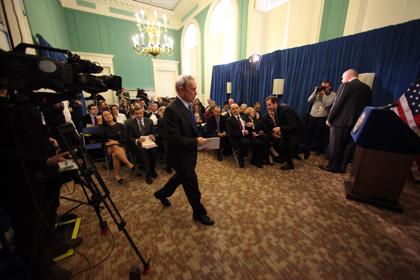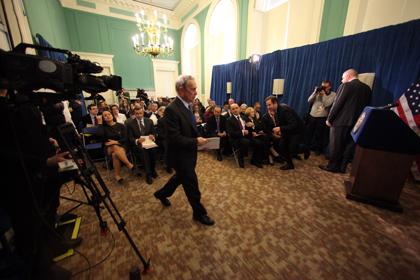NEW YORK—Mayor Michael Bloomberg outlined the preliminary $68.7 billion net total budget for fiscal year 2013, which begins July 1, in the Green Room at City Hall on Thursday, focusing on pension reform.
“The biggest issue facing our ability to balance budgets in the future is the enormous growth in pension costs,” said Mayor Bloomberg. “Right now our pension system is fairly described, I think, as ‘a ticking time bomb,’ and we are working in partnership with Gov. Cuomo to diffuse that time bomb.”
Gov. Cuomo on Jan. 17 outlined pension reform in his 2012–2013 Executive Budget and Reform Plan , which proposes creating a new tier in the state pension system that would save the state and local governments outside New York City $83 billion and NYC an estimated $30 billion over the next 30 years.







